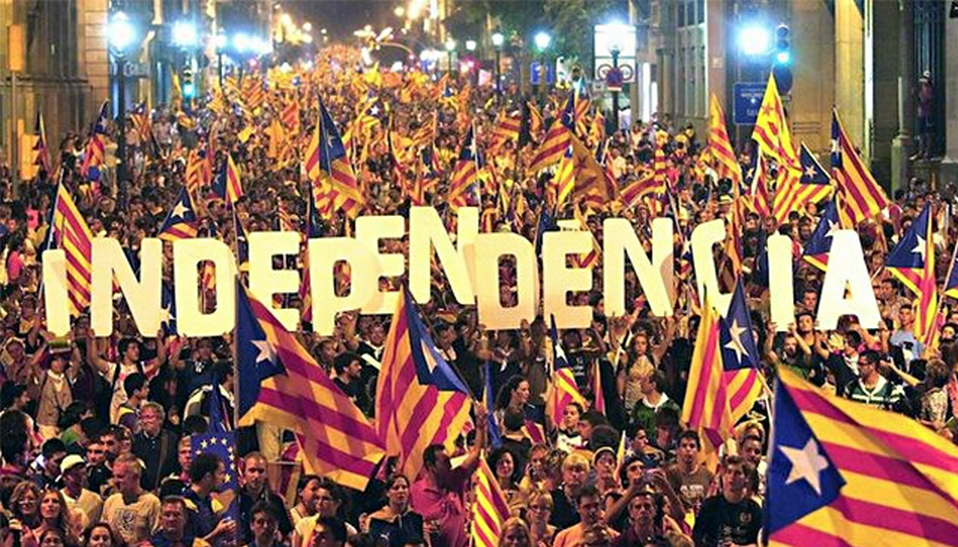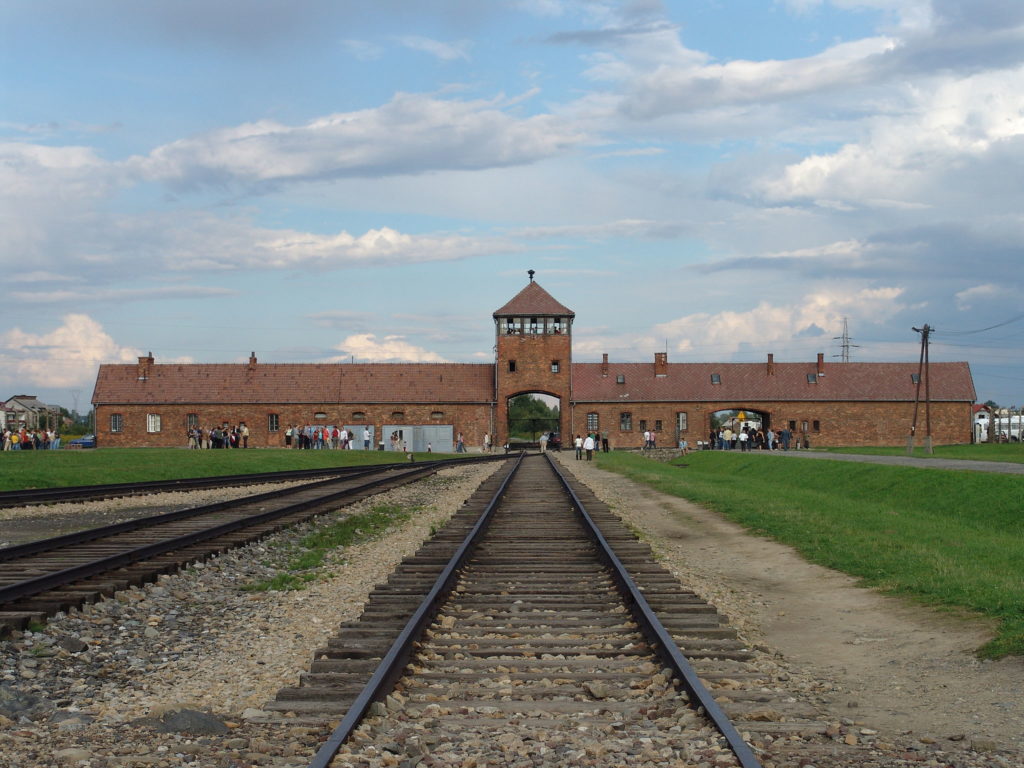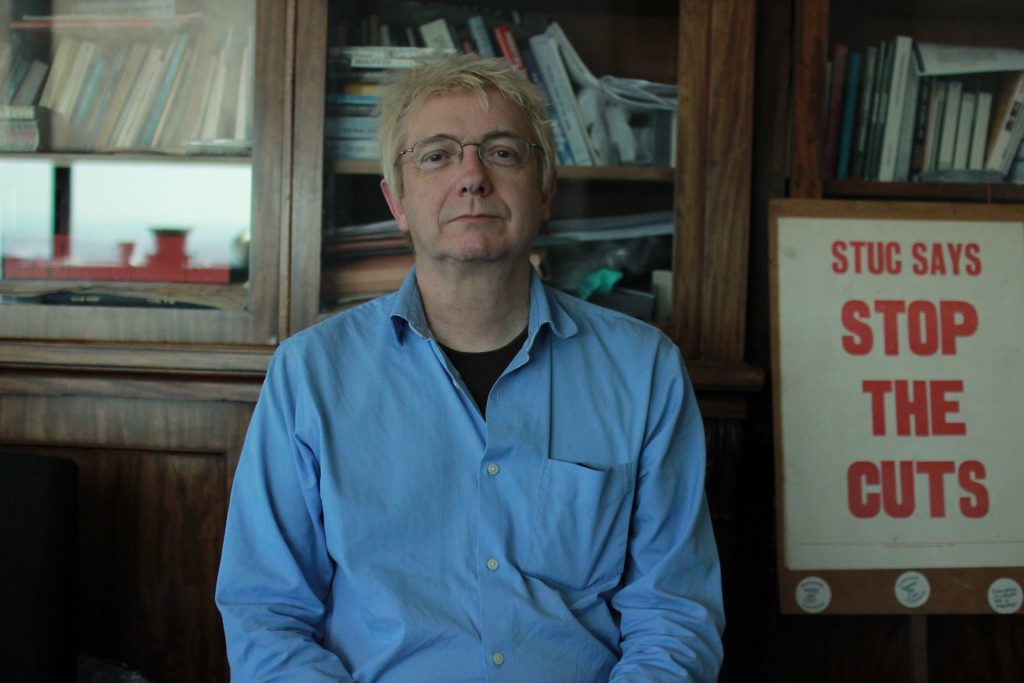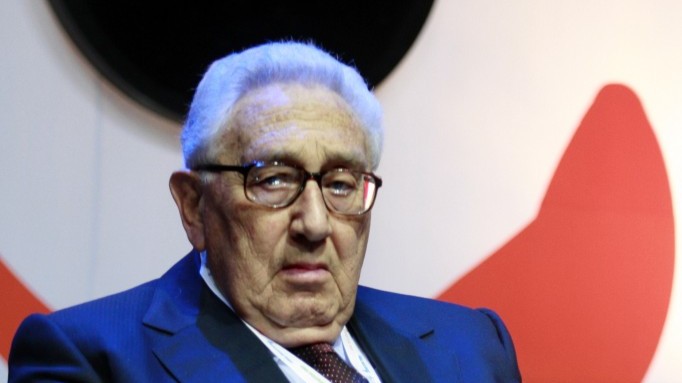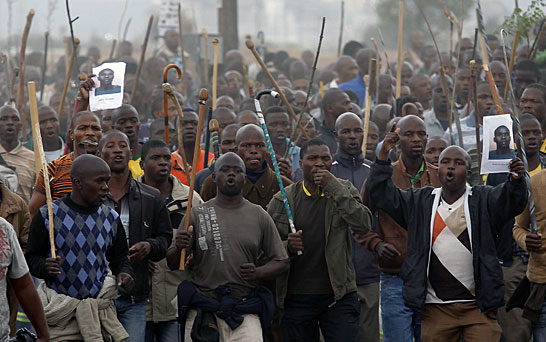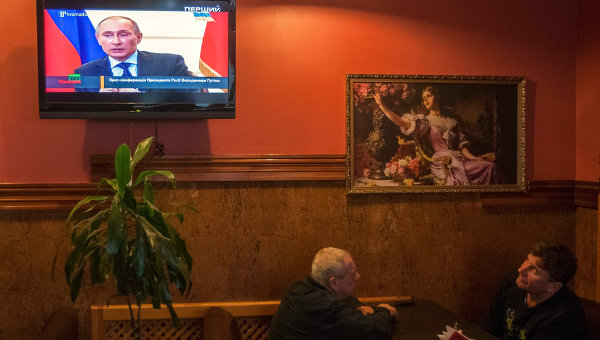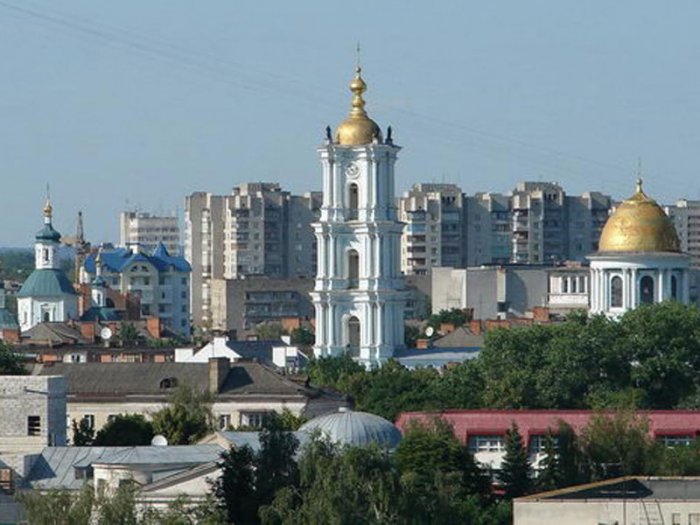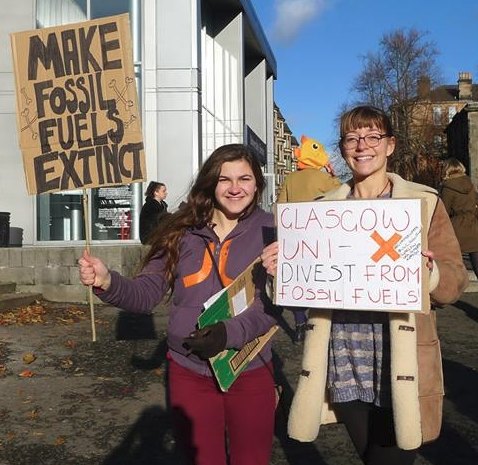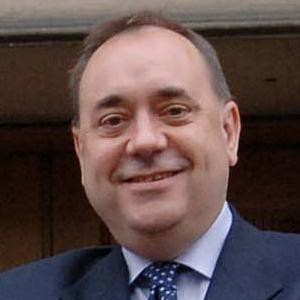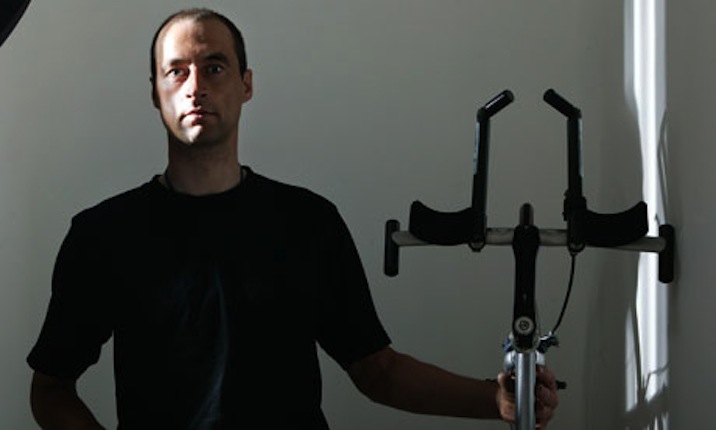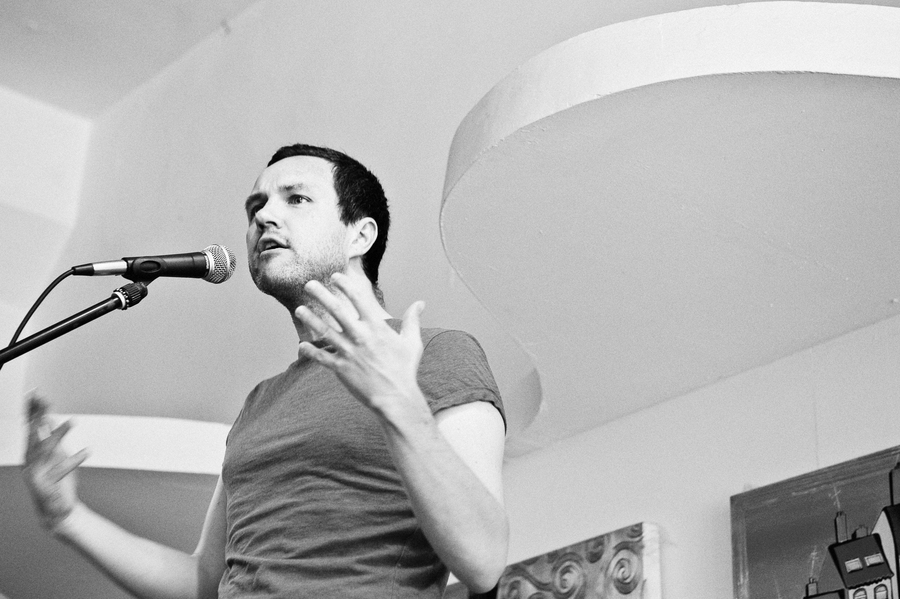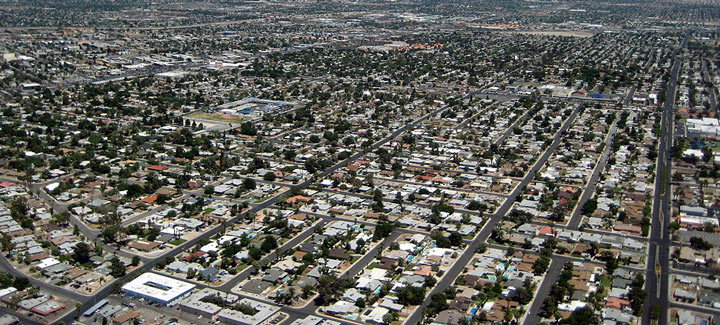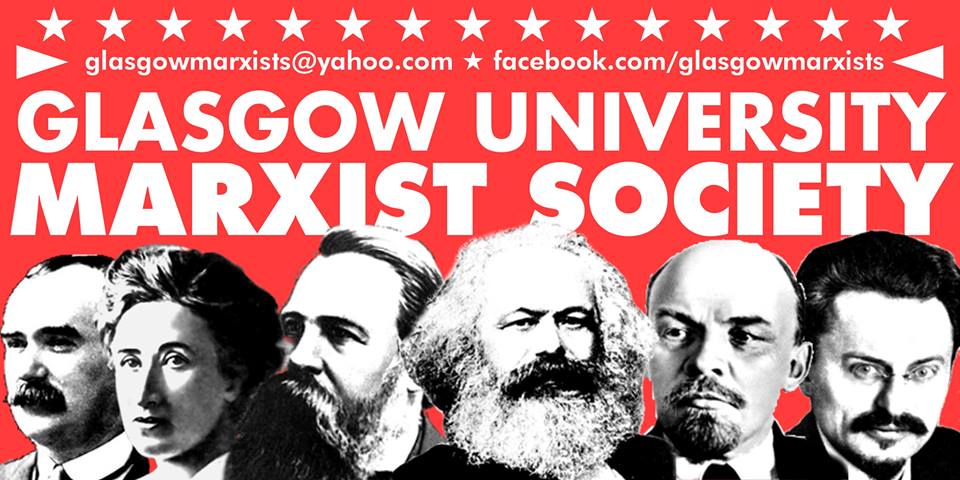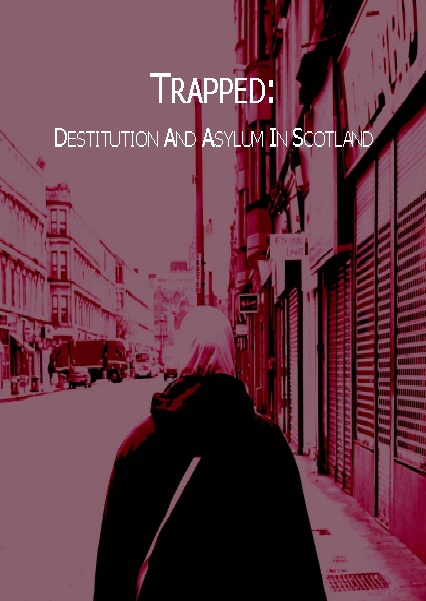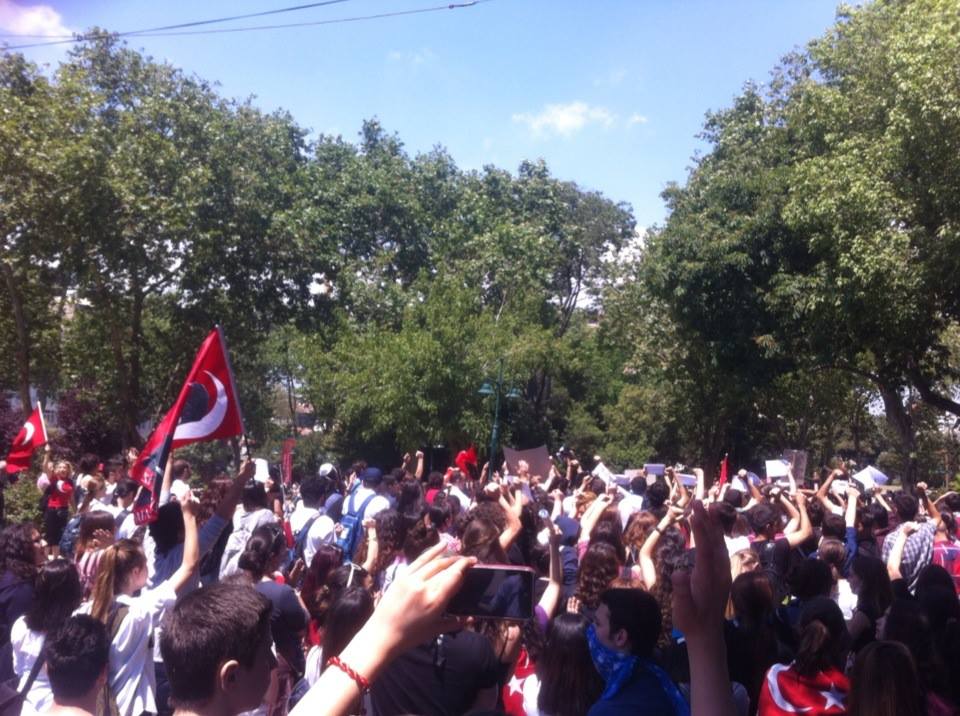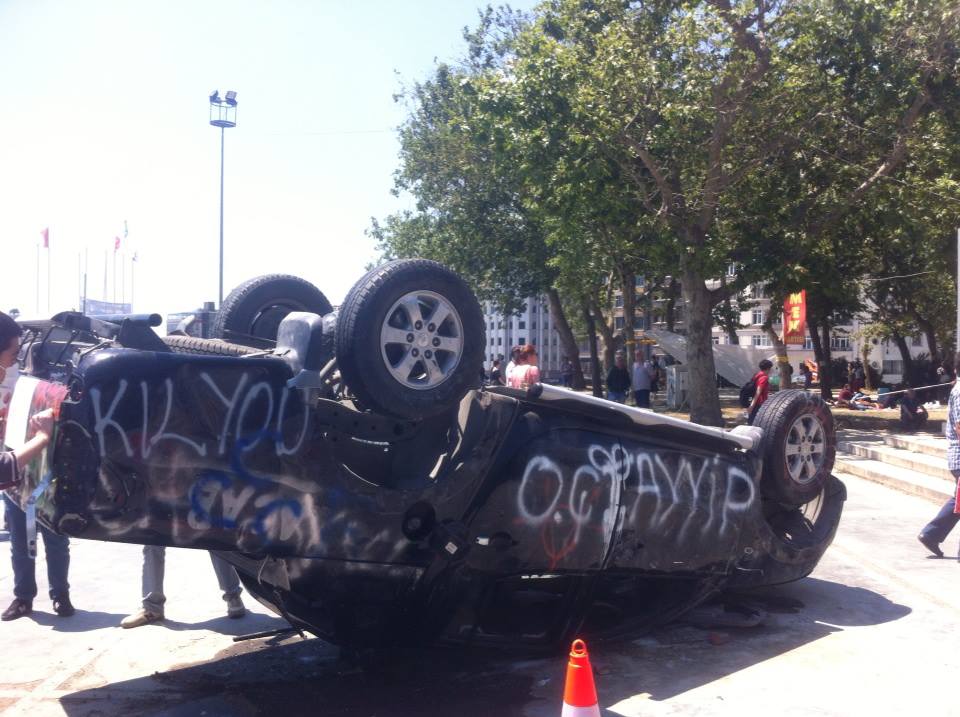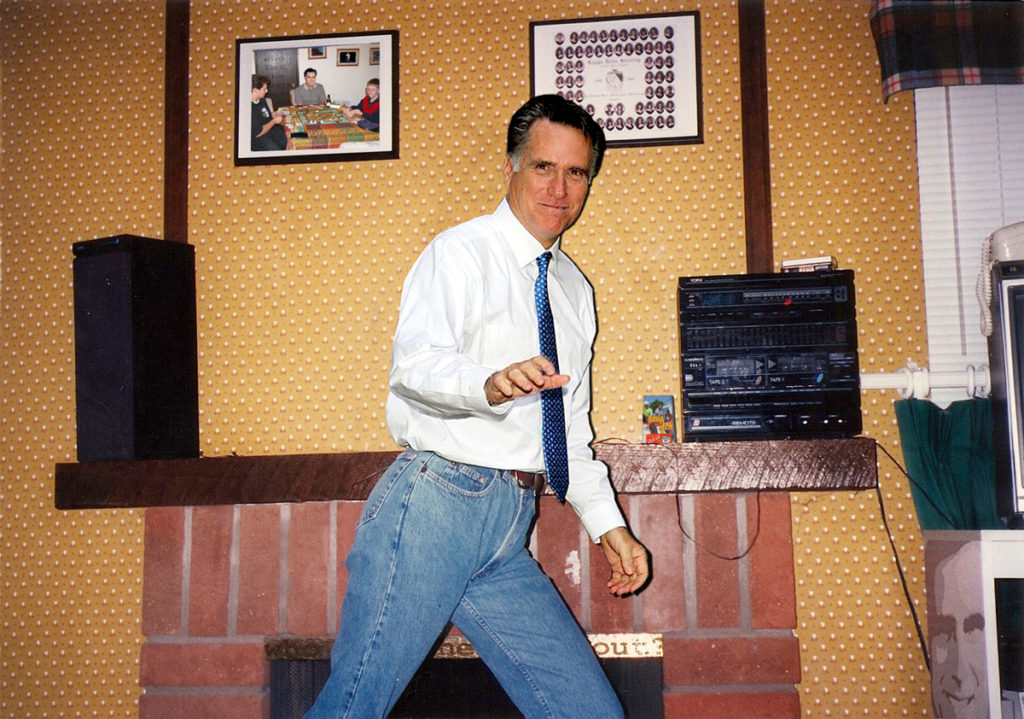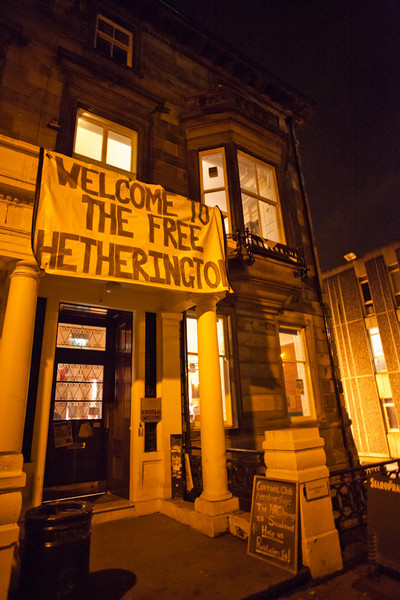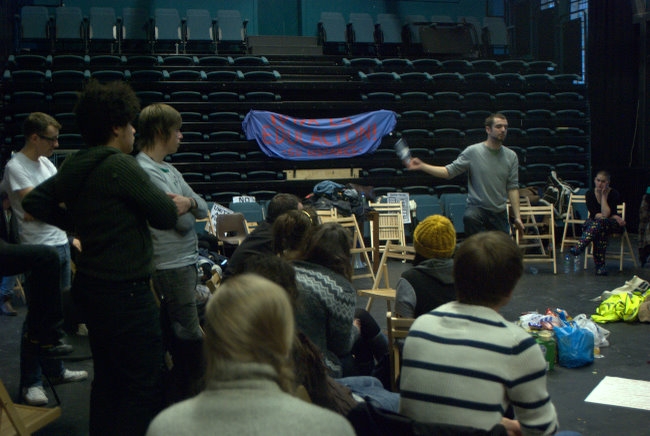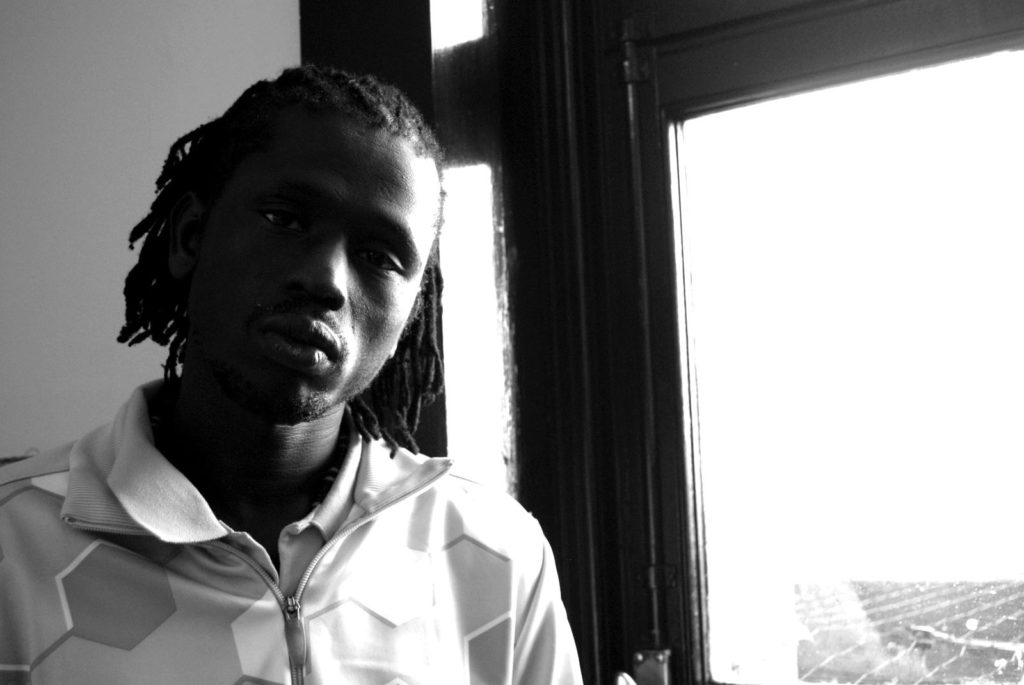Istanbul Under Siege
The riots that have electrified the city of Istanbul for four days now continue to endure, despite heavy police retaliation. What began as a peaceful protest to prevent the redevelopment of Gezi park in Taksim Square has now escalated into a nation-wide demonstration against the current Government.
Recep Tayyip Erdoğan has been repeatedly criticised for his dogmatic influence over the country based on grassroots Islamic ideals, and his latest staunch refusal to listen to protesters has ignited anger even among those who had voted him into his third term as Prime Minister. In his address to the country on the 2nd June he referred to the protesters as “terrorists” and has been quoted as saying “every four years we hold elections and this nation makes its choice”. Despite the democratic election Erdoğan seems to have forgotten that a democracy constitutes the decisions of several members of a party, yet it is shockingly clear that Erdoğan holds the majority of the power, and indeed earns more than any other politician in the world at $989,000 a month, although Wikileaks claims that his earnings may be far higher. It would not be a far stretch of the imagination to envisage Erdoğan as the next Putin and Turkish President Abdullah Gül serving as Medvedev, however in stark opposition to the Prime Minister, Gül has defended the people’s right to protest stating: “democracy does not mean elections alone. There can be nothing more natural for the expression of various views, various situations and objections through a variety of ways, besides elections.”
Despite Gül calling for a peaceful end to the violence and a more mature handling of the situation, suggestive of mishandling on both sides, Erdoğan has continued to belittle the extent of the riots claiming that he would not ask permission for the redevelopment plans from “a few looters”. It has emerged that the destruction of Gezi Park is not only to free up valuable real estate for a shopping mall, but also includes the construction of a Mosque, a symbolic representation of Neo-Ottomanism and Turkey’s new incentive under the Justice and Development Party to engage with areas previously under Ottoman rule in the Middle East.
Although the riots are being referred to as the ‘Turkish Spring’ in reference to the ‘Arab Spring’ uprisings of 2010, this would be a false representation. The events in Turkey are more an uprising against fascism than an Imperialist fueled uprising against Islam, which in such countries as Egypt were conducted by armed extremist groups. The protests in Istanbul began as a reaction against heavy handed police retaliation in Gezi Park, where peaceful environmental protesters were viciously attacked in their tents during a dawn raid. The nature of the events has magnified into a nationwide protest against an increasingly authoritarian government, with anti-government demonstrations appearing across Turkey including Erdoğan’s hometown Rize.
With cries rising from the crowd of ‘shoulder to shoulder against fascism’ the riots are not as complicated as Erdoğan has suggested. In an address on 3rd June he encouraged the view that the riots have a politically subversive agenda, stating “citizens should not be part of this ‘game’”; a ‘game’ that alleges the opposition party, the People’s Republican Party, are involved in actuating the riots for their own gain.The demonstrations, however, are obviously not instigated by a few extremist “marginalized groups” as Erdoğan has stated; it is the result of a highly pressurised problem that has finally discovered a fissure out of which to escape. A large part of the population are fearful of being forcibly dragged into a theocratic state run by a “Sunni Islamist tyrant”, as one source expressed. As proudly stated by the men on the streets as well as by Erdoğan himself, albeit with different intent; “this is no longer about trees, it is about ideology”.
As the fourth night of the demonstrations descend on the city, Taksim Square remains occupied and the streets are a cacophony of clanging pots and pans and car horns which can be heard from the other side of the Bosphorus. Despite heavy police intervention including tear gas canisters and high pressure water jets fired directly at the crowd just a day before, people are still resisting against what is being called a Dictatorship. Although Erdoğan conceded that “there have been some mistakes, extremism in police response” he also insisted that “the police were there yesterday, they are there today, and they will be there tomorrow.”
Inside Bahrain; an Interview with an activist
Mizriya Maryam Abdulhadi al-Khawaja is a Bahraini human rights activist. She is the daughter of a prominent Bahraini activist Abdulhadi al-Khawaja and the vice president for the Bahrain Centre for Human Rights. Freedom House has awarded Maryam and her father for their determination in the pro-democratic struggle in the Kingdom of Bahrain.
We’ve recently passed the second anniversary of Bahrain’s Jasmine Revolution uprising, marked by yet another death of a young dissenter from wounds induced by a security force birdshot into the rioting crowd. How do you see the situation in your country right now?
Unfortunately the human rights situation in Bahrain continues to deteriorate. Due to the reality of local and international impunity, which officials of the Bahraini regime enjoy, little progress has been made to put an end to the ongoing almost daily violations.
On the other hand, the protests have not stopped. On the contrary, they continue almost on a daily basis. People understand that they’re in this for the long haul, but they also firmly believe in the idea of “no government can outlast its people”.
The unwillingness of the government to acknowledge some opposition and, in instances, choose to repress certain voices, has seemingly pushed many, mostly poor Shiites, to extreme political convictions. Bearing in mind the current state of countries like Egypt or Tunisia, do you also now also demand a full-blown revolution, or still believe in institutional cooperation towards pro-democratic reforms?
The people on the streets, one of the main groups being the February 14th Coalition are demanding the stepping down of the regime, regarding the self acclaimed king of Bahrain as being directly responsible for the ongoing violations. On the other hand, the political societies, whose popularity is decreasing as more people start to support the coalition, are demanding reforms and a constitutional monarchy.
As human rights defenders we do not have political asks. Our demands are more directed towards accountability, justice and the protection of human rights. The demand for accountability includes the heads of the ruling family; which means putting the king, crown prince and prime minister on trial.
Interview with an Ambassador: Iain Ferrier Lindsay
Iain Ferrier Lindsay has been Her Majesty’s Ambassador to the Kingdom of Bahrain since 2011. Having joined the Foreign & Commonwealth Office in the 1980s, he has since represented the United Kingdom on diplomatic missions in Hong Kong, Japan and Bucharest, among others.
What is the British embassy’s stance on the political turmoil that has been troubling Bahrain since the crackdown on the Jasmine Revolution-related protests in 2011?
Our view is that sustainable stability in Bahrain can only be achieved through continued reform. We support the reforms, which are underway and urge the Bahraini government to show greater energy in implementing reform. Progress has been made in some areas but there is still a lot more to be done, e.g. on implementing the recommendations of the Bahrain Independent Commission of Inquiry and the UN Human Rights Council Universal Periodic Review. But there needs to be movement on the political track as well as the reform track. We therefore welcome the resumption of political dialogue in early February and encourage all parties to remain involved in the process. The only way to promote peace and stability in Bahrain is through an inclusive dialogue that addresses the legitimate aspirations of all Bahrainis and helps to build the trust and confidence necessary for longer-term reconciliation.
In 2005, Tony Blair officially stated that Britain and Bahrain have a ‘strong, warm and longstanding relationship.’ Given the current times of political crisis Salman al-Khalifa’s government seems to be troubled with, as well as allegations of accounts of rights abuses, is this strong relationship still the case?
Britain has had a long-standing and close relationship with Bahrain, going back nearly 200 years. We are Bahrain’s oldest and most trusted partners outside the region. Bahrain is of great strategic importance for the UK. Therefore Bahrain’s stability is critical for our interests. Given, as I say above, that we believe that sustainable stability can only be achieved through continued reform and given the closeness of the relationship, not just with the government but across the spectrum of Bahraini society, it is natural that the UK should want to help Bahrain to reform. So, yes, the relationship is still close. But, as with all good friends, we are honest when we see things which we believe are wrong. So we are not an uncritical friend.
The unwillingness of the government to acknowledge some opposition and, in instances, choose to repress certain voices, has seemingly pushed many, mostly poor Shiites, to extreme political convictions. Given United Kingdom’s experience of repression in Northern Ireland, what would your advice to the authorities be, for this particular issue?
Bahrain needs reform and political dialogue. There are legal opposition parties in Bahrain. They are currently taking part in the political dialogue that is underway. While I agree that the events of the last 2 years have led to an increase in radicalised young Shia I do not believe that they are representative of the Shia population at large. I think it is still the case that Al Wefaq, the main Shia opposition party (who are in the talks and who won nearly half the seats in the 2010 parliamentary elections) still commands the loyalty of most Shia. But the risk must be that if there is insufficient reform and the political dialogue gets nowhere that more people, on both sides of the sectarian divide, will adopt more extreme positions. Some observers in Bahrain say that the country resembles Northern Ireland in the late ‘60s. What the UK’s support for reform and dialogue is intended to do is to ensure that Bahrain does not stumble into becoming like Northern Ireland of the ‘70s or ’80s.
Views on Scottish Independence
To those outside the UK, the Scottish independence debate can seem strange. Strange because to many outsiders our country seems at ease with its unity, and although Scottish identity is certainly distinct from that of British or English identity, the distinctions are not so marked as to leave it obvious that Scots might desire to part from the Union.
Whether this shows the essential fallacy of Scottish nationalism or a misapprehension of the Scottish people’s wishes will become clear upon the referendum in 2014. Nonetheless, the non-Scottish perspective can add context to the independence debate.
Sometimes the political culture of Scotland is seen to be out of kilter with much of the UK. While this is true, it is also true for large parts of northern England. Furthermore, the lack of Conservatives north of the border is a relatively recent development. Last century, Scots were voting for Harold Macmillan’s Tories pretty much with the grain of the rest of the country.
The Free Hetherington in Pictures
Here are some photos I took the day after the Hetherington was occupied. I’ll post some more shortly… – Sean Anderson

GU Student Occupation
On Wednesday 8th December 2010, students of Glasgow University occupied the university theatre at Gilmore in protest of the cuts to the welfare state in general and to education in particular. Speakers including student activists and trade union officials, spoke of the need to voice concern and prevent the measures that will lead to an elitist education system and greater inequality in society. Arriving at 1pm, the student were initially shut into the building before organisers secured freedom of access to the building, when it became clear to the authorities that the protest was peaceful. Reportedly, around 30 or so students stayed the night on the university premises and many today attended protests which coincided with the MPs vote on education cuts. Parliament today voted to raise the upper-limit which universities can charge for fees in England to £9,000 by a narrow 323 to 302, but protests such as our own have been happening all over the country hae largely been backed b the public and are set to continue in the figt against austerity. Jonathan Nicholson was there to capture the 21st century version of student activism, amidst all the Tweeting, Facebooking laptops, and bags of supplies from the local exhausted Tescos.
Caught in a Bad Bromance
Politics. What do you think when you hear that word? Boring, right? Well you’d be wrong. Recently, there has been so much drama in the world of British politics that even Jeremy Kyle would be proud!
It all began with the expenses scandal when the public discovered they were paying for everything from duck ponds to dirty movies. Following this Labour were booted out of government only to be replaced by Tweedledee and Tweedledum aka David Cameron and Nick Clegg. Quite frankly we still can’t establish who wears the trousers in that relationship! Then William Hague’s ‘special’ advisor resigned following some disturbing rumours about his relationship with oor Willie. To top it all of we have the ongoing contest for the Labour leadership which is about as interesting as watching paint dry considering the only candidate with any balls is a woman who is, if we are being totally honest a bit of a nut job. Even Ed Balls doesn’t have any! So, all in all, it’s no surprise there is only a barely functioning relationship between politicians and the British public. Bad romance indeed.
INGLORIOUSLY EXPLOITATIVE?
Do film directors and writers have an obligation to stay true to history when depicting the events of World War II? IAIN MITCHELL tries to find an answer
Refugees, rifles and rap | Franck Martin
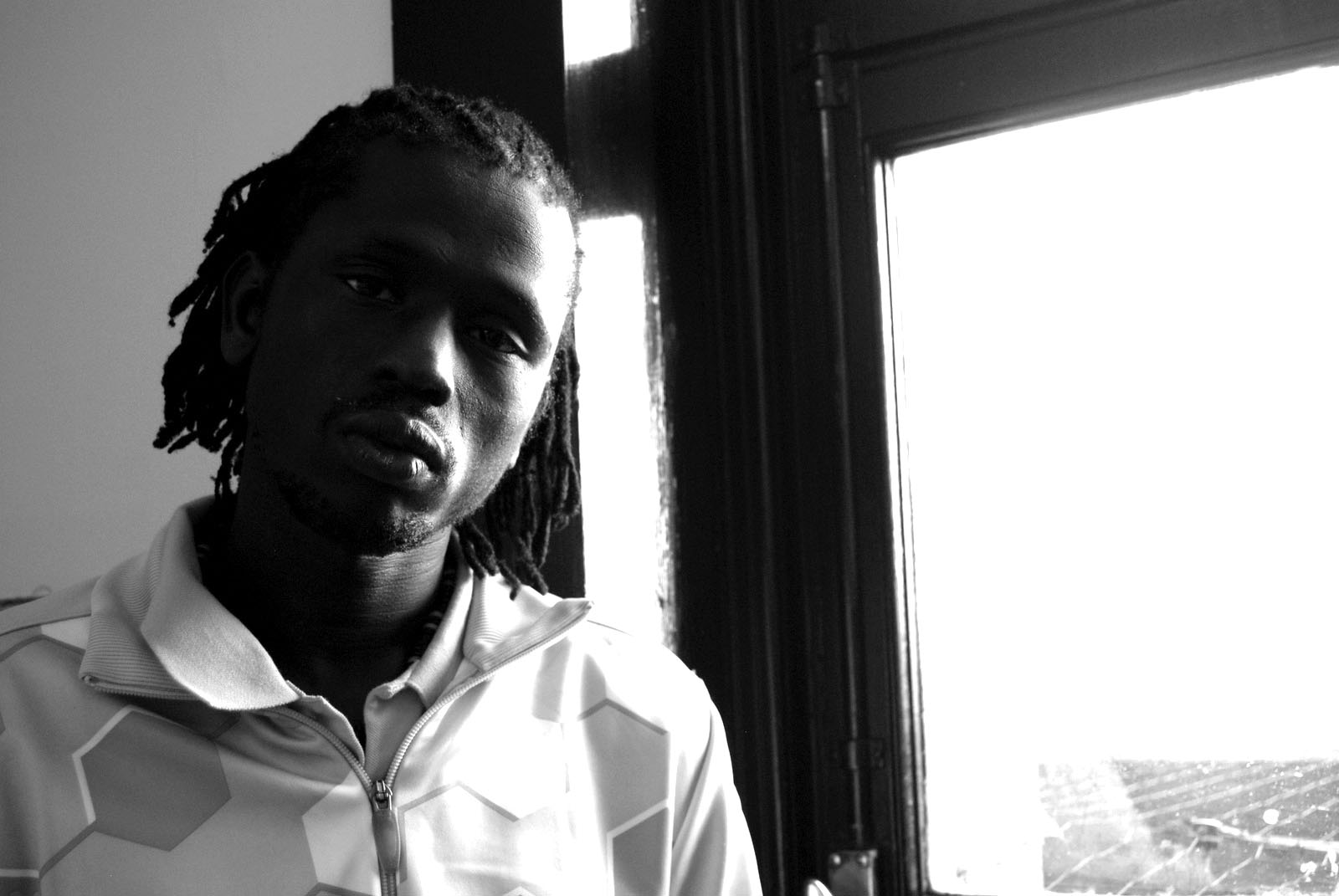 Franck Martin sits down with Emmanuel Jal, author, musician and documentary maker, to learn what hip-hop means to him and why he feels it is his duty to relive his days as a Sudanese child soldier. (more…)
Franck Martin sits down with Emmanuel Jal, author, musician and documentary maker, to learn what hip-hop means to him and why he feels it is his duty to relive his days as a Sudanese child soldier. (more…)


